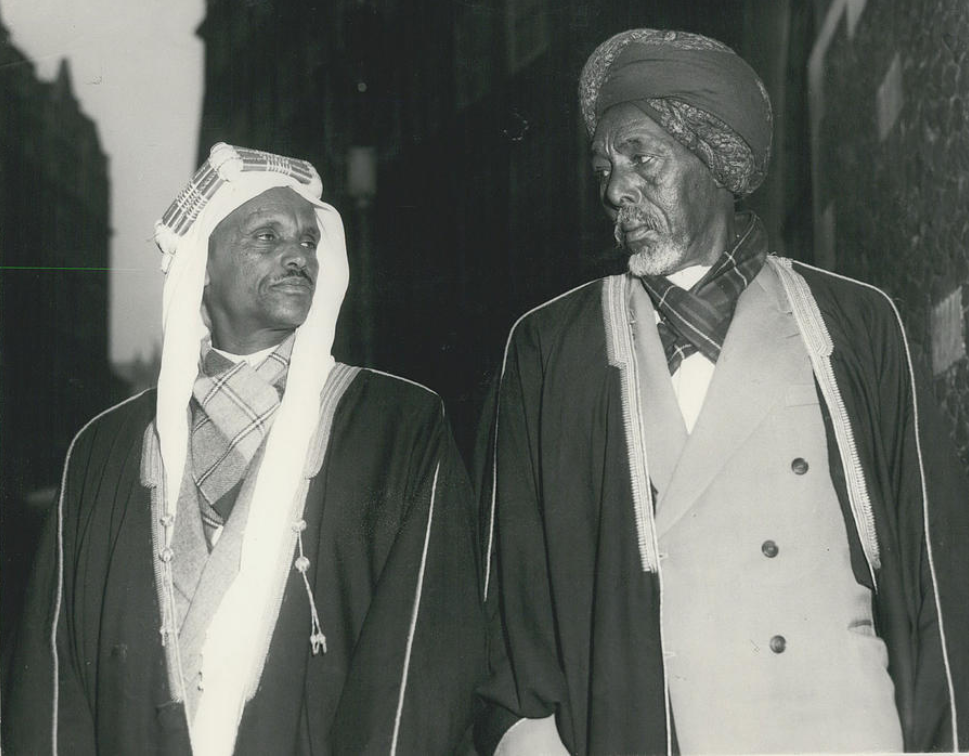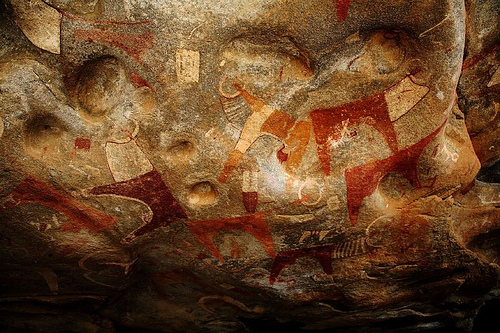|
Rashid Abdillahi
Sultan Rashid Abdillahi ( so, Rashiid Cabdillaahi, ar, رشيد بن عبدالله) was the sixth Grand Sultan of the Isaaq Sultanate and reigned from 1967 to 1969, when he was succeeded by his brother Abdiqadir Abdillahi Sultan Abdiqadir Abdillahi ( so, Suldaan Cabdiqaadir Suldaan Cabdillaahi, ar, عبدالقادر بن عبدالله) was the seventh Grand Sultan of the Isaaq Sultanate. He ruled from 1969 to 1975, when he died. He was succeeded by his son, Ma .... Biography Rashid was active in independence and post-independence politics and accompanied his father Sultan Abdillahi Deria. In 1966 he would lead a delegation of the Somali Parliament to Teheran and the 55th World Interparliamentary Conference. References 20th-century Somalian people Somali sultans Somalian Muslims Year of birth missing 1969 deaths {{Africa-royal-stub Grand Sultans of the Isaaq Sultanate ... [...More Info...] [...Related Items...] OR: [Wikipedia] [Google] [Baidu] |
Sultan
Sultan (; ar, سلطان ', ) is a Royal and noble ranks, position with several historical meanings. Originally, it was an Arabic abstract noun meaning "strength", "authority", "rulership", derived from the verbal noun ', meaning "authority" or "power". Later, it came to be used as the title of certain rulers who claimed almost full sovereignty (i.e., not having dependence on any higher ruler) without claiming the overall caliphate, or to refer to a powerful governor of a province within the caliphate. The adjectival form of the word is "sultanic", and the State (polity), state and territories ruled by a sultan, as well as his office, are referred to as a sultanate ( '). The term is distinct from king ( '), despite both referring to a sovereign ruler. The use of "sultan" is restricted to Muslim countries, where the title carries religious significance, contrasting the more secular ''king'', which is used in both Muslim and non-Muslim countries. Brunei and Oman are the only in ... [...More Info...] [...Related Items...] OR: [Wikipedia] [Google] [Baidu] |
Isaaq Sultanate
The Isaaq Sultanate ( so, Saldanadda Isaaq, Wadaad: , ar, السلطنة الإسحاقية) was a Somali kingdom that ruled parts of the Horn of Africa during the 18th and 19th centuries. It spanned the territories of the Isaaq clan in modern-day Somaliland and Ethiopia. The sultanate was governed by the Rer Guled branch of the Eidagale clan and is the pre-colonial predecessor to the modern Republic of Somaliland. History Origins According to oral tradition, prior to the Guled Dynasty the Isaaq clan-family were ruled by a dynasty of the Tolje'lo branch starting from, descendants of Ahmed nicknamed Tol Je'lo, the eldest son of Sheikh Ishaaq's Harari wife. There were eight Tolje'lo rulers in total, starting with Boqor Harun () who ruled the Isaaq Sultanate for centuries starting from the 13th century. The last Tolje'lo ruler Garad Dhuh Barar ( so, Dhuux Baraar) was overthrown by a coalition of Isaaq clans. The once strong Tolje'lo clan were scattered and took refuge amongs ... [...More Info...] [...Related Items...] OR: [Wikipedia] [Google] [Baidu] |
Abdillahi Deria
Sultan Abdillahi Deria ( so, Cabdillaahi Diiriye, ar, عبدالله بن ديريه) was the fifth Grand Sultan of the Isaaq Sultanate and a notable Somali anti-colonial figure. Biography Abdillahi was the son of Sultan Deria Hassan whom he succeeded. A member of the Eidagale sub-division of the Garhajis subclan, his reign covered the later years of British Somaliland and most of the subsequent Somali Republic. Somali National League Sultan Abdillahi was a vehement anti-colonialist and was a prominent member of the ''Somali National League'' the dominant party in the protectorate. He directly encouraged agitation and petitions by local British Somaliland communities to file with authorities. He would soon become the Secretary General of the party and one of its critical tasks was resolving the Haud dispute. Haud Delegation In response to the cessation of Haud Reserve and the Ogaden regions to Ethiopia in the year 1948, Abdillahi led a delegation of politicians and Sult ... [...More Info...] [...Related Items...] OR: [Wikipedia] [Google] [Baidu] |
Abdiqadir Abdillahi
Sultan Abdiqadir Abdillahi ( so, Suldaan Cabdiqaadir Suldaan Cabdillaahi, ar, عبدالقادر بن عبدالله) was the seventh Grand Sultan of the Isaaq Sultanate. He ruled from 1969 to 1975, when he died. He was succeeded by his son, Mahamed Abdiqadir Sultan Mahamed Abdiqadir ( so, Suldaan Maxamed Suldaan Cabdiqaadir, ar, محمد بن عبدالقادر بن عبدالله) (died 12 February 2021) was the eighth Grand Sultan of the Isaaq Sultanate. Mahamed Abdiqadir died on 12 February 2021 .... References 20th-century Somalian people Somali sultans Somalian Muslims 1975 deaths Year of birth missing {{Africa-royal-stub Grand Sultans of the Isaaq Sultanate ... [...More Info...] [...Related Items...] OR: [Wikipedia] [Google] [Baidu] |
Guled Dynasty
House of Guled ( so, Reer Guuleed, Wadaad writing: ) was the ruling house of the Isaaq Sultanate from 1750 to 1884 and is also a subclan in its own right. The family are descendants of the Eidagale sub division of the wider Garhajis and in extension Isaaq clan-family. Although they no longer hold any authority, they are the royal house of Somaliland and are viewed as a favoured symbol in the country. In July 2021, Sultan Mahamed Abdiqadir had a state funeral with nationwide media coverage and was attended by high government officials, including the president of Somaliland; Muse Bihi Abdi and foreign dignitaries. Origin The Guled dynasty was established in the middle of the 18th century by Sultan Guled of the Eidagale line of the Garhajis clan. His coronation took place after the victorious battle of Lafaruug in which his father, a religious mullah Abdi Eisa successfully led the Isaaq in battle and defeated the Absame tribes near Berbera where a century earlier the Isaaq clan ... [...More Info...] [...Related Items...] OR: [Wikipedia] [Google] [Baidu] |
Hargeisa
Hargeisa (; so, Hargeysa, ar, هرجيسا) is the capital and largest city of the Republic of Somaliland. It is located in the Maroodi Jeex region of the Horn of Africa. It succeeded Burco as the capital of the British Somaliland Protectorate in 1941. Hargeisa is the largest city in Somaliland, and also served as the capital of the Isaaq Sultanate during the mid-to-late 19th century. Hargeisa was founded as a watering and trading stop between the coast and the interior by the Isaaq Sultanate. Initially it served as a watering Well for the vast livestock of the Eidagale clans that inhabited in that specific region and later were joined by the current clans of Hargeisa. In 1960, the Somaliland Protectorate gained independence from the United Kingdom and as scheduled united days later with the Trust Territory of Somaliland (former Italian Somaliland) to form the Somali Republic on July 1. Encyclopædia Britannica, ''The New Encyclopædia Britannica'', (Encyclopædia Brita ... [...More Info...] [...Related Items...] OR: [Wikipedia] [Google] [Baidu] |
Somali Republic
The Somali Republic ( so, Jamhuuriyadda Soomaaliyeed; it, Repubblica Somala; ar, الجمهورية الصومالية, Jumhūriyyat aṣ-Ṣūmālīyyah) was a sovereign state composed of Somalia and Somaliland, following the unification of the Trust Territory of Somaliland (the former Italian Somalia) and the State of Somaliland (the former British Somaliland). A government was formed by Abdullahi Issa Mohamud and Muhammad Haji Ibrahim Egal and other members of the trusteeship and protectorate administrations, with Haji Bashir Ismail Yusuf as President of the Somali National Assembly and Aden Abdullah Osman Daar as President of the Somali Republic. On 22 July 1960, Daar appointed Abdirashid Ali Shermarke as Prime Minister. On 20 July 1961 and through a popular referendum, Somalia ratified a new constitution, which was first drafted in 1960. The new constitution was rejected by Somaliland. The administration lasted until 1969, when the Supreme Revolutionary Coun ... [...More Info...] [...Related Items...] OR: [Wikipedia] [Google] [Baidu] |
Somaliland
Somaliland,; ar, صوماليلاند ', ' officially the Republic of Somaliland,, ar, جمهورية صوماليلاند, link=no ''Jumhūrīyat Ṣūmālīlānd'' is a ''List of states with limited recognition, de facto'' sovereign state in the Horn of Africa, still considered internationally to be part of Somalia. Somaliland lies in the Horn of Africa, on the southern coast of the Gulf of Aden. It is bordered by Djibouti to the northwest, Ethiopia to the south and west, and Somalia to the east.Encyclopædia Britannica, ''The New Encyclopædia Britannica'', (Encyclopædia Britannica: 2002), p.835 Its claimed territory has an area of , with approximately 5.7 million residents as of 2021. The capital and largest city is Hargeisa. The government of Somaliland regards itself as the Succession of states, successor state to British Somaliland, which, as the briefly independent State of Somaliland, united in 1960 with the Trust Territory of Somaliland (the former Italian Soma ... [...More Info...] [...Related Items...] OR: [Wikipedia] [Google] [Baidu] |
Sunni Islam
Sunni Islam () is the largest branch of Islam, followed by 85–90% of the world's Muslims. Its name comes from the word ''Sunnah'', referring to the tradition of Muhammad. The differences between Sunni and Shia Muslims arose from a disagreement over the succession to Muhammad and subsequently acquired broader political significance, as well as theological and juridical dimensions. According to Sunni traditions, Muhammad left no successor and the participants of the Saqifah event appointed Abu Bakr as the next-in-line (the first caliph). This contrasts with the Shia view, which holds that Muhammad appointed his son-in-law and cousin Ali ibn Abi Talib as his successor. The adherents of Sunni Islam are referred to in Arabic as ("the people of the Sunnah and the community") or for short. In English, its doctrines and practices are sometimes called ''Sunnism'', while adherents are known as Sunni Muslims, Sunnis, Sunnites and Ahlus Sunnah. Sunni Islam is sometimes referr ... [...More Info...] [...Related Items...] OR: [Wikipedia] [Google] [Baidu] |
Teheran
Tehran (; fa, تهران ) is the largest city in Tehran Province and the capital of Iran. With a population of around 9 million in the city and around 16 million in the larger metropolitan area of Greater Tehran, Tehran is the most populous city in Iran and Western Asia, and has the second-largest metropolitan area in the Middle East, after Cairo. It is ranked 24th in the world by metropolitan area population. In the Classical era, part of the territory of present-day Tehran was occupied by Rhages, a prominent Median city destroyed in the medieval Arab, Turkic, and Mongol invasions. Modern Ray is an urban area absorbed into the metropolitan area of Greater Tehran. Tehran was first chosen as the capital of Iran by Agha Mohammad Khan of the Qajar dynasty in 1786, because of its proximity to Iran's territories in the Caucasus, then separated from Iran in the Russo-Iranian Wars, to avoid the vying factions of the previously ruling Iranian dynasties. The capital has been ... [...More Info...] [...Related Items...] OR: [Wikipedia] [Google] [Baidu] |





